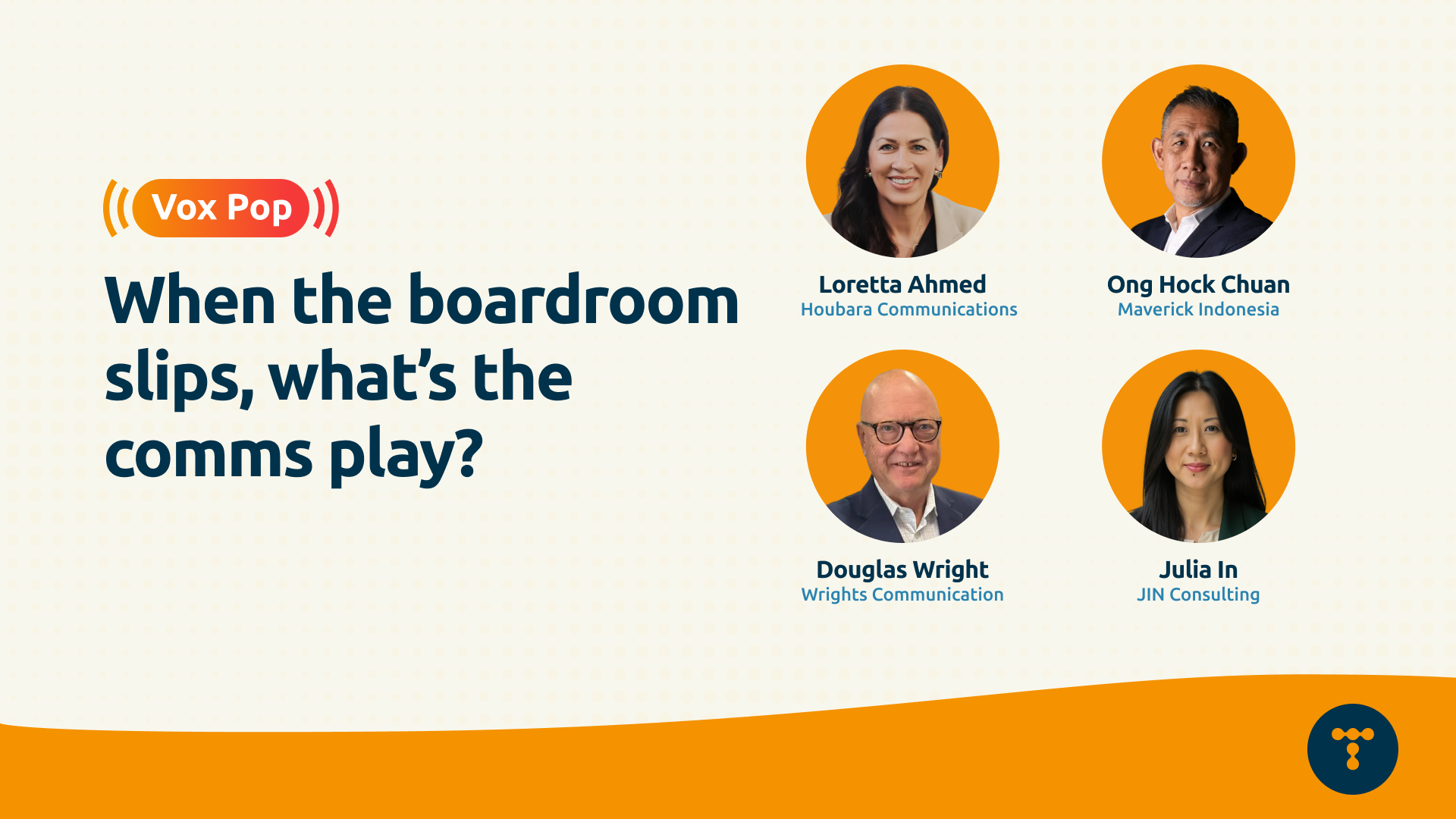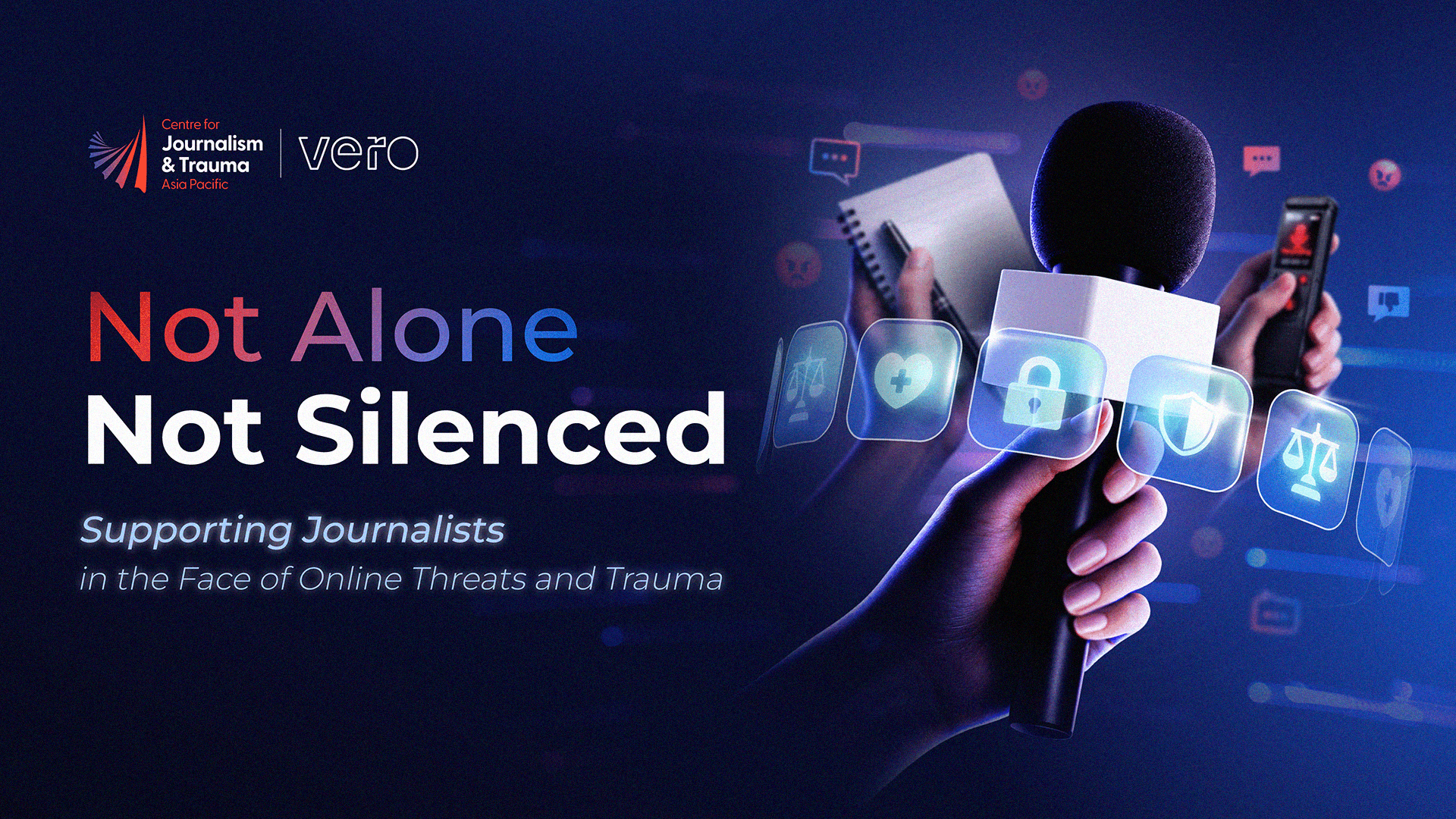When a senior leader's private life comes under public scrutiny, the ripple effects can quickly reach far beyond the individual and potentially impact the businesses that they represent. How soon should communications teams step in to manage the fallout? What can they do to protect the company's reputation when the crisis spirals?
Telum Media spoke to four PR professionals across Asia Pacific and the Middle East to examine the crucial role communications plays when personal reputation issues threaten to impact corporate reputation.
Douglas Wright, Chief Executive Officer, Wrights Communication
In today's digital circus, nothing says "Monday morning headache" like your CEO starring in a kiss-cam clip that's racking up views faster than Trump's tariff tirades. If your exec's concert cameo is trending harder than your quarterly results, it's not time to hide - it's time for comms to muster the troops and maybe bring a mop.
The shocker isn't just the embarrassment - it's the speed. One grainy 10-second clip, and suddenly you've got memes, conspiracy theories, and a global guessing game of "Who's that with the boss?" Spoiler: the internet got it wrong. Again. Collateral damage isn't a risk anymore - it's guaranteed.
This is where crisis comms earns its stripes. It's not just about damage control. It's about shielding those dragged into the spotlight by bad luck or the gravitational pull of social media. These days, "innocent bystander" is practically a job title.
Humour has its place when used wisely. A wink can cool the temperature; a lazy gag adds fuel. If your joke lands on someone already copping heat, it's the wrong joke. If legal has to review it, it's not worth telling.
And let's not overthink it: if you don't want to go viral, don't do the thing. In this case, comms isn't here to excuse poor judgement. It's here to manage consequences. Save your best efforts for real reputational risk - not for an own goal.
Loretta Ahmed, Founder and CEO, Houbara Communications
Every leader is entitled to a private life. But when you hold a position of influence, especially as a CEO, your actions, even outside the office, carry weight. You cannot credibly stand on stage, championing company values like integrity, respect, and accountability, while behaving publicly in ways that are at odds with those same values. In an age of transparency and instant judgment, that disconnect simply doesn't cut it.
The comms team must step in when that behaviour threatens to undermine stakeholder trust, damage internal morale, or call into question the credibility of the company's leadership. At that point, it's not just a personal matter, it becomes a business risk.
This is where authenticity and transparency are vital. The response must be clear-eyed, honest, and aligned with the company's values, not a scramble to cover up, but a conscious effort to acknowledge the disconnect and take appropriate action. That may involve a statement, a personal apology, or in some cases, a more serious leadership review.
It comes down to this: you can't lead by values only when it suits you. As a leader, you set the tone, and you're held to a higher standard. Live by the sword, die by the sword. Today's audiences expect consistency, not perfection, and they expect accountability.
Julia In, Director, Media and Spokesperson Training, JIN Consulting
In today's always-on media world, a single photo, video, or comment can stir a reputational crisis, particularly when a senior leader's personal conduct comes under scrutiny, as seen in the viral incident of senior executives being caught cheating on their spouses.
PR intervention is critical the moment a leader's actions risk damaging the company's reputation, stakeholder trust, or employee morale. Integrity is not a 9-to-5 job, character matters in leadership, whether in private or public.
When a leader's behaviour violates ethical standards or exploits workplace power dynamics, decisive action - such as suspension or resignation - may be required to preserve credibility and brand trust. Employees expect leaders to model humility, integrity, and accountability; not abuse workplace power dynamics and resources. Failure to do so erodes loyalty and trust and undermines workplace culture.
While companies cannot prevent every crisis, PR professionals excel at containing the fallout. The first step is often an internal memo to employees and stakeholders, crafted to reflect empathy, address audience concerns, and reinforce leadership commitment to a transparent, speak-up culture.
In a crisis, PR professionals operate swiftly and strategically like a triage unit, streamlining communications and implementing protocols across management and staff. Under brand headwinds, leadership look to communications for capable and confident counsel and a steady-hand - that's where we deliver. Reputational risk mitigation begins with controlling the narrative, not reacting to someone else's. When a crisis emerges, the PR function steps up, streamlines communications, and steers companies away from the noise.
Broadly speaking, the viral incident underscores a humbling universal lesson: reputation is your most valuable asset. Reputation is your competitive advantage. It's your current influence and future self. Don't gamble it in any setting.
Ong Hock Chuan, Managing Partner, Maverick Indonesia
Comms teams should step in long before a senior leader's personal life comes under scrutiny. This involves helping the board anticipate and assess risks in these volatile and perilous times.
The teams should help the board ensure that internal stakeholders understand the company's values and the seriousness of adhering to them, with escalating levels of responsibility and expectation, where senior leadership is expected to lead by example.
That said, there are times when, in spite of all precautions, a senior leader's personal life may come under public scrutiny. In such instances, comms teams can assist the board in fact-checking the situation. Doing so will help define whether the issue is truly personal and blameless - mutual misunderstanding or incompatibility - or is a breach of ethics, morality, loyalty, or just plain stupidity.
If it is the former, the comms team should help the company express empathy and support for the leader involved by humanising the issue, clarifying any rumours of ill intent and violation of the company's values, and expressing solidarity with the individual.
However, if it is the latter, then the comms team should help the company dissociate itself from the leader due to their failure to live up to their responsibilities, no matter what their excuse. As Steve Jobs famously told his staff, "When you're the janitor, reasons matter. Somewhere between the janitor and the CEO, reasons stop mattering."



